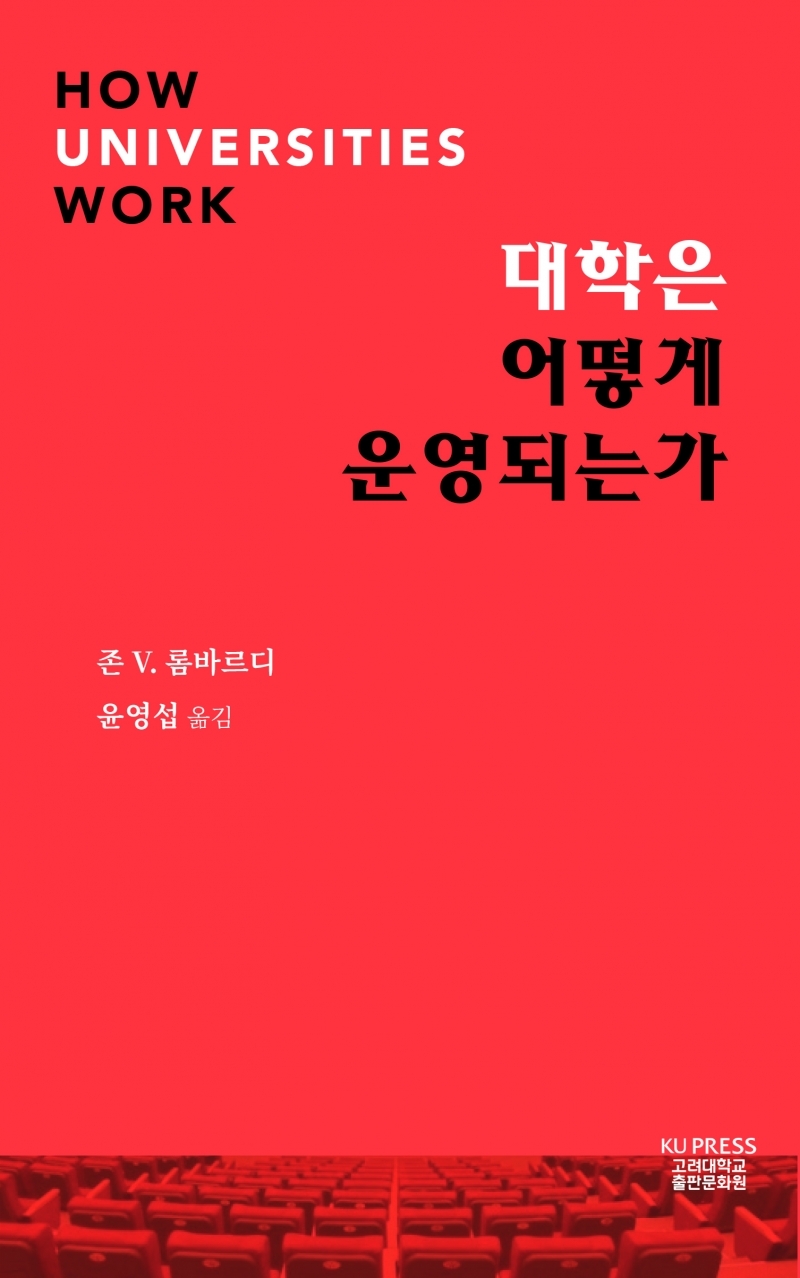News
KUBS News
Universities are enterprises, and university management is in line with corporate management
2022.12.26 Views 2235 국제실
[New book introduction at Korea University's Publishing Culture Center]
Universities are enterprises, and university management is in line with corporate management

Author: John V. Lombardy
Title: How Universities Work
Translation: Yoon Youngseop
《How Universities Work is a book about university management. In particular, in addition to the original function of research university, that is, education, it focuses on universities that make research another main mission. The business management techniques of research-oriented universities that lead the direction of high-level education today, presented in this book, are also applied to other types of universities. In Korea, when talking about university management, it is called university administration rather than university management. While administration focuses on the allocation of resources, management has an essential difference in that it goes further from the allocation of resources and values, but gives great meaning to its performance and consequent compensation. In the United States, which has the world's best research-oriented universities, universities are enterprises from the beginning, that is, academic companies and research companies, so university management is in line with corporate management.
Universities can be largely divided into academic organizations in charge of teaching and research and management organizations that support them. Management should not only apply to management organizations, but also to academic organizations, the book says. In other words, it is said that management principles should be applied to teaching and research. Just as the purpose of a company is to maximize corporate value, the purpose of a university should be to maximize university value, and for this purpose, universities should increase the quality and productivity of teaching and research as much as possible. Among them, because maximizing quality is of utmost importance, this book calls universities a quality engine, and presents specific standards and methods without saying the purpose of these universities in a declarative sense. In order to evaluate the quality and productivity of research and teaching, it is said that it must be measured with objective data and its performance must be compensated.
It is said that the university manager understanding the finance and budget of the university is essential and introduces several models. In addition, it emphasizes the role of other issues of affiliates of the university, namely governance and regulation, the importance of leadership, changes in libraries, the importance of non-degree courses, and the importance of intellectual property management with fundraising.
The author speaks firmly. "This book follows the money." Although it is in a different history, a different environment, it is the same issues and problems that universities face. Quality and productivity should be measured to manage revenues and costs and invest in improved performance, and means of analysis and action should be developed.
At a time when our universities are facing a period of destructive change due to population decline, insufficient finances, the emergence of new technologies, and international competition, this book could help universities pursue qualitative change and expansion of efficiency.
John V. Lombardy
He is a college executive who has served as vice president and president of several famous universities in the United States. During his ten-year tenure as president of the University of Florida, he emphasized measurement and reward of university performance, showed interest in student-athletic welfare, academic achievement, and college sports, and repeated conflicts and cooperation with the state government over the continuing decline in university finance. He served as vice president of Johns Hopkins University from 1987, president of Amherst Campus at the University of Massachusetts for five years from 2002, and president of the University of Louisiana University System, which oversees five campuses until 2012. Starting with his Ph.D. in philosophy at Columbia University in 1968 at the age of 26, he served as a professor of history at Indiana University for 20 years, especially writing a number of papers and books on Latin American history and university management.
Yoon Youngseop (Honorary Professor of KUBS, former Vice President of Korea University)
He graduated from Seoul National University with a degree in economics and studied business administration at the University of Michigan and Ohio State University graduate schools. After that, he taught financial management and finance for more than 30 years at U.S. universities and Korea University Business School, and gained many years of experience in university administration in fundraising, international exchange businesses, and public relations. After retirement, he worked for several years as the head of a school corporation that manages middle and high schools and (professional) universities, and became more interested in education in general, especially high-level education. In particular, he is carefully examining how American universities came to the top of the global university rankings.
❖ Korea University Publishing Culture Center Editorial Office
02-3290-4231 | Fax 02-923-6311


